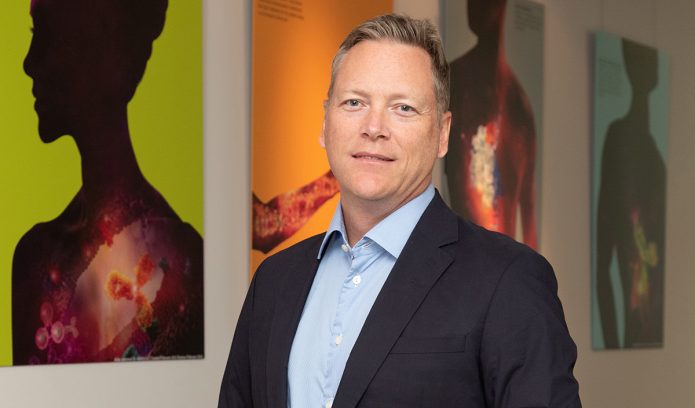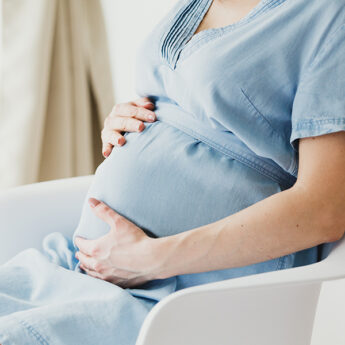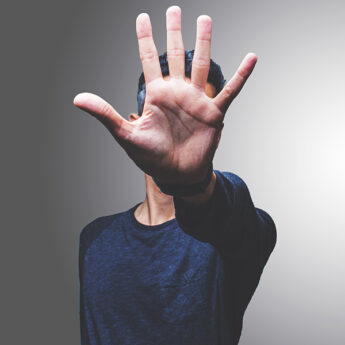• Recent paper suggests positive effect
• Further studies required to prove efficacy
• Combination of treatments may be best
In Japan, acupuncture has become a popular treatment for stiff shoulders, aching lower backs, and injuries resulting from sport or traffic accidents. Can its applications be extended, however, to address depression?
Acupuncture has a long history in this country, likely having first been used here in the 6th century. The practice was imported from China as part of the system of traditional Chinese medicine (TCM). Over time, there started to take shape a distinct Japanese style of acupuncture, which diverged from the TCM model.
Following the Meiji Restoration (1868), and the subsequent reorganisation of medical services as Japan became more Westernised, traditional Japanese medicine began to be rapidly replaced by orthodox Western medicine.
However, acupuncture is still widely practised and available, though by specially trained practitioners, rather than general physicians.
European interest in acupuncture dates from the 17th century, although the treatment only started to gain popularity in the West in the 1970s.
This occurred following acupuncture’s revival in communist China and the endorsement of Chinese acupuncture in the US by some media outlets and institutions of the time.
A variety of different styles or schools are now practised in the West, some based on TCM or other traditional systems, and others that aim to integrate acupuncture into more modern medical theory.
Scientific interest among Westerners was first triggered by some extraordinary stories of patients receiving major surgery with only acupuncture for anaesthesia. Such tales have since been largely discredited, and interest has now moved from using acupuncture for anaesthesia to applying treatment for analgesia (pain relief).
However, much controversy still remains about the quality of the scientific and trial data supporting the use of acupuncture as a painkiller and for other conditions, partly as a result of concern over publication bias.
There has been some interest in the past regarding the effectiveness of acupuncture for treating depression, for example when 30 published trials were evaluated in a 2010 Cochrane Review paper titled “Acupuncture for Depression”.
However, the paper concluded the studies under consideration were of insufficient quality, and that there was little evidence of an effect on depressive symptoms.
In my UK practice, acupuncture was never a treatment I came across or thought to recommend to patients for depression or other mental health issues. So, naturally, I was very interested to read “Acupuncture and Counselling for Depression in Primary Care: A Randomised Controlled Trial,” a paper published in PLOS Medicine. The article presents some new trial data suggesting acupuncture might be helpful for relieving depression.
The study’s authors conducted a randomised controlled trial (RCT) of 755 patients diagnosed with depression who were already undergoing treatment with their general practitioners. It randomly assigned patients to one of three groups: treatment as usual, counselling or acupuncture.
The “treatment as usual” group received standard care from their general practitioners. Patients in the latter groups received on average nine counselling sessions or 10 acupuncture sessions.
At both the three-month and 12-month follow-ups, there was evidence of a statistically significant improvement in depressive symptoms in both groups.
So, is it safe to say acupuncture cures depression? Certainly not yet. Caution must be observed when interpreting the study’s results, a rule that applies to any RCT.
First of all, the trial was not blinded—i.e. patients knew which treatments they were receiving. Thus, there was no effective placebo in the trial design.
While it is difficult to include an effective placebo in an acupuncture trial, in some cases “orthodox” acupuncture has been used in conjunction with “sham” acupuncture, which does not follow prescribed practises and is viewed as totally ineffective.
In addition, though statistically significant, the scale of improvement noted in patients was modest; only a couple of points were won on a symptom-rating scale.
However, the trial was realistic in that patients included had suffered from depression before, or had experienced symptoms for a while, and many of them were already taking antidepressants.
What, then, is the takeaway message?
My reading is this: for people with depression, who have sought help and are already receiving some form of doctor-supervised treatment, a course of acupuncture may also help address their symptoms. I use the word “may” as seeing one swallow doesn’t make a summer. As called for by the authors of the medical paper, the study requires replication with a larger, preferably sham acupuncture-controlled trial.
The use of acupuncture for depression needs to be considered in the context of other evidence-based treatments for the condition. Many of these more established approaches have a body of supporting evidence far more robust than that for either counselling or acupuncture.
The standard treatment for depression, depending on severity, remains cognitive therapy, antidepressant drugs and, where possible and appropriate, addressing maintaining factors (things that keep a disease or illness going).
Still, the results presented in this study are interesting, and if further trial data supports its conclusions, acupuncture may become a treatment doctors can recommend for depression.





